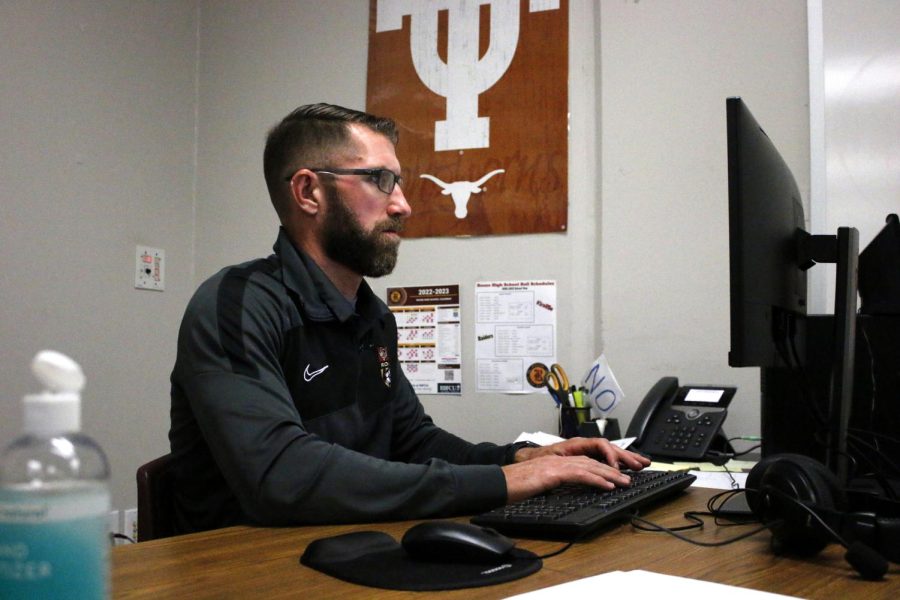Money Matters
Financial literacy is a life skill that many don’t learn in school
7 in 10 American parents admit that they are reluctant to talk about money with their children, as reported by investment management company T. Rowe Price. Meanwhile, young people entering adulthood continue to struggle managing their finances every day. Parents aren’t the only ones to blame – according to a Champlain College national “report card,” over half of the schools in the United States received a grade of “C” or even lower regarding financial literacy.
Financial literacy, the ability to understand and effectively use money, is an essential life skill. Unfortunately, many young adults have been entering the workforce without knowledge of how to budget, invest, and save their money. Without these basic skills, they fall further and further into debt and fail to prepare for retirement.
“I think building a foundation before you generate a revenue stream is extremely important,” Money Matters teacher Darrell Knight said. “Habits are created in practice at an early age. Understanding how you can make your money work for you is [important] as opposed to always struggling and trying to get by, which is what a lot of Americans, and people throughout the world, do.”
Since so many families hesitate to discuss money at home, advocates sometimes argue the responsibility falls to schools. Money Matters is a class that aims to fix this problem by educating students in a classroom setting about personal finance.
“The things that I teach, I wish I knew when I was 16 years old.” Knight said. “We didn’t have a class like this growing up. I think if they listen, and they implement it in their lives and bank accounts, it can definitely benefit them going forward.”
The inconsistency between the lack of financial education for teens in school and the expectations of young adult life is very large and its consequences are just as great. Students who don’t take Money Matters may still recognize the problem just from their experiences with peers and in their daily lives. Under the care of their parents, they may have never been required to manage their own money.
“I think [other kids] know some about money, but not to the point where it’s an everyday kind of thing where it’s off the top of their head,” sophomore Skylar Reddington said. “I definitely think it’s important to learn about it in school…I need to start making money someday so it’s gonna be really hard to be able to count it when I don’t really know how.”
Without the proper knowledge, adult life is an obstacle course of financial predicaments. First, there are student loans – all the money people borrow in order to pay for college. People begin paying off their student debt when they graduate, more and more interest accumulates over the time it takes to finish.Then, there comes challenges like paying for a place to live. Budgeting is crucial to staying afloat. Throughout it all, they are also expected to collect emergency savings and save up for their retirement.
“I feel like the system we’re in doesn’t really help us with becoming adults, especially money-wise,” sophomore Alex Ramos said. “The condition of our economy isn’t looking good for any of us…I have a lot of family that are first-generation college students that have a lot of student debt.”
To cement their education about money in school, high school students would need to supplement lessons with open conversations with their families and friends.
“Obviously, most things in education start at home,” Knight said. “But not every student has the same home life or opportunities for that. I think [you need] a combination of good practice and knowledge.”
Unless they receive direct instruction in a class like Money Matters, students may not know where to start when it comes to personal finance. Luckily, there are plenty of ways to set oneself up for success while still in high school.
“Start saving early and start investing early – the earlier the better,“ Knight said. “Avoiding debt, making smart choices, and learning how to budget would be the best place to start. Any of those practices, even if it’s a small amount, will lead to more financial success going forward.”





K R Shanbhogue • Oct 5, 2022 at 8:58 pm
Well above my capacity to comprehend .Great to know that Snigdha is fairing well in her endevours. Good luck and forge ahead as usual.
Veena Dhruva • Oct 5, 2022 at 7:43 pm
The author has put forth some really good points. And yes, we need to have financial skills not as an extra feather to be added but as a necessary life skill, as important as swimming and cooking, to be able to navigate the maze called life.
I appreciate her indepth analysis on this article.